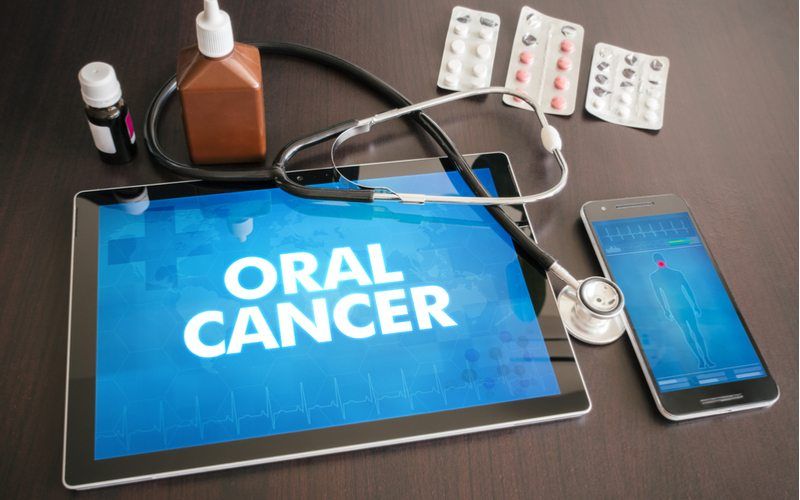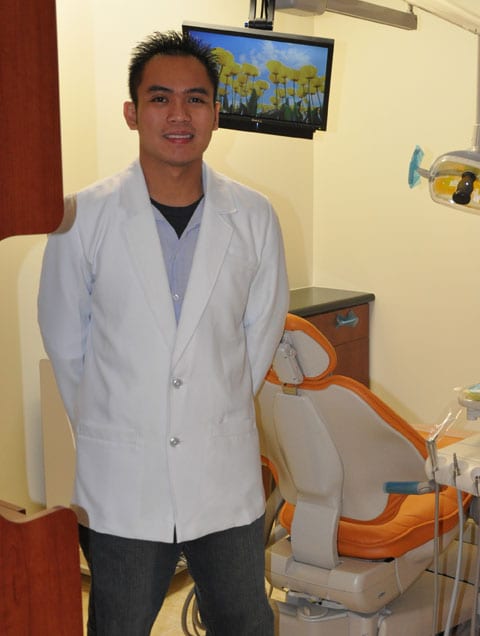There are two categories of oral cancer. The first category involves cancers that occur in your lips, cheeks, teeth, gums, front two-thirds of your tongue and the floor and roof of your mouth. The other category includes cancers that affect the middle portion of the throat, as well as the tonsils and base of the tongue.
Early detection through regular oral cancer screenings plays an important part in improving a patient’s probability of surviving over 5 years. Both categories of oral cancers make up 3% of all of the cancer cases diagnosed in the United States.
What are the symptoms of oral cancer?
There are several symptoms of oral cancer that an individual should pay attention to. Schedule an appointment with Dr. Barbon if any of the following symptoms persist for more than two weeks.
Often times oral cancer starts as sores or irritations that don’t go away. Sometimes they look like red or white patches that are followed by pain, tenderness, and/or numbness in the mouth or lips. Additional symptoms include a small eroded area or lump that has thickened or formed a rough spot, as well as a change in your mouth’s alignment.
If you find any of these symptoms, it’s important to contact our office without panicking. We want each of our patients to remain calm while we work to diagnose what might be affecting them.
Am I at risk for oral cancer?
There are several factors that increase an individual’s chance of developing oral cancer. Those who are older than 50 and smoke and drink have the highest risk. Men are two times more likely to develop cancer than women. Additionally, nonsmokers who are HPV positive tend to be the most commonly affected group after those who engage in high-risk habits.
Cancers caused by HPV, a sexually transmitted disease, tend to occur at the back of the throat, but carry a lower risk of death.
As with all cancers, regular screenings play an important role in early detection. Additionally, those who have had oral cancer in the past are more likely to develop it in the future. This is another reason why regular screenings are so important.
What is involved in an oral cancer screening?
Oral cancer screenings are non-invasive and involve a simple examination by the doctor. He will feel your neck and throat and examine your lips, gums, tongue, and cheeks. As he examines your mouth he will look for open sores or any other symptoms that could indicate the presence of cancer.
How do I prevent oral cancer?
Preventing oral cancer requires patients to avoid exposing themselves to certain risk factors, like smoking and excessive drinking. The CDC also recommends 11 and 12-year-old boys and girls are vaccinated against the HPV virus, as this virus can lead to cancers.
If you’re looking for a dentist who is experienced in diagnosing oral cancer, contact our team at Super Dental Care. We’re proud to serve the Pasadena area’s dental needs, including regular screenings for oral cancer, TMJ treatment, full-mouth reconstruction, and other preventative dental care like exams and x-rays.












